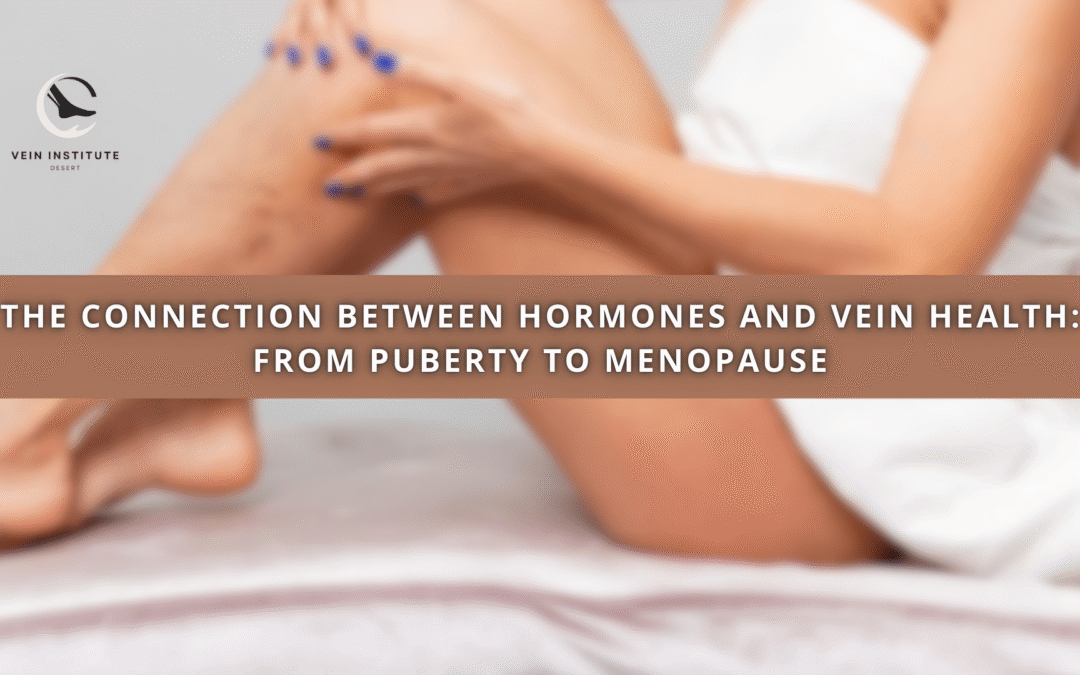Hormones and Vein Health: From Puberty to Menopause
🌸 How Hormonal Shifts Affect Veins Throughout Life
Vein health is never static, especially for women. Hormones influence circulation from the earliest stages of puberty, shaping how veins adapt to pressure and blood flow. Estrogen and progesterone, in particular, impact vein walls and the efficiency of vein valves. When these hormones fluctuate, blood vessels become more prone to dilation and pooling.
At puberty, increased hormone activity can create the first signs of venous weakness, sometimes visible as small spider veins. Later in life, pregnancy multiplies hormonal influence, relaxing blood vessel walls while simultaneously increasing blood volume. This combination often causes varicose veins to appear or worsen. Finally, during menopause, reduced estrogen levels affect vein elasticity, making veins stiffer and more vulnerable to chronic venous insufficiency.
🩺 Why a Vein Doctor Plays a Key Role in Women’s Health
A vein doctor is often the first specialist able to connect a patient’s symptoms with underlying hormonal changes. For many women, leg heaviness, swelling, or visible veins are dismissed as cosmetic issues. In reality, these signs may be linked to decades of hormonal transitions.
By identifying the connection between hormones and vein function, doctors can recommend targeted care at each life stage. For teenagers, guidance may focus on early prevention. During pregnancy, strategies might include safe compression therapy and lifestyle support. Post-menopause, treatment options expand to advanced procedures that correct venous reflux and restore circulation.
🌵 The Role of Desert Vascular Specialists in Comprehensive Care
Living in desert regions like Palm Desert presents unique challenges for circulation. Heat alone dilates blood vessels, but when combined with hormonal changes, the strain on veins can be even greater. This is where desert vascular specialists provide critical expertise.
Specialists understand how environmental and hormonal factors overlap. For example, women in dry, hot climates face a higher risk of dehydration, which thickens blood and complicates venous return. When coupled with menopause-related changes in vein elasticity, the outcome is often persistent swelling or discomfort. Desert vascular experts tailor treatment to these specific conditions, ensuring that care accounts for both lifestyle and biology.
👩🔬 Stages of Hormonal Influence on Vein Health
Hormones affect circulation differently depending on life stage. Each transition requires a distinct approach.
✅ Key Stages Include:
- 🌱 Puberty: Hormonal surges may introduce the first signs of weakened vein walls.
- 🤰 Pregnancy: Increased blood volume and hormonal relaxation of vessels often trigger varicose veins.
- 🌙 Menopause: Declining estrogen reduces elasticity, raising the risk of chronic venous insufficiency.
Recognizing these milestones allows patients and doctors to anticipate challenges and apply preventive strategies before problems escalate.
💡 When to Schedule a Vein Consultation
Even mild symptoms can signal deeper issues when hormones are involved. A professional vein consultation helps women understand whether their concerns stem from temporary changes or long-term venous insufficiency. During a consultation, diagnostic imaging can reveal valve function and blood flow patterns, offering clarity on the best path forward.
The Vein Institute of the Desert in Palm Desert emphasizes education as part of every consultation. Patients not only learn about their current condition but also receive guidance on maintaining circulation health throughout hormonal transitions. This proactive approach ensures comfort, confidence, and lasting results.
🌺 Supporting Vein Health Through Hormonal Changes
Hormonal cycles are natural, but their effects on veins can be managed with the right care. From preventive strategies like hydration, regular activity, and compression therapy to advanced treatments such as sclerotherapy or endovenous ablation, women have options at every stage.
By collaborating with skilled specialists in Palm Desert, patients gain more than treatment—they receive comprehensive care that respects the realities of hormonal transitions. With timely support, it is possible to protect circulation, minimize discomfort, and maintain quality of life across all stages of womanhood.

Andy Sharify
The founder and owner of The Vein Institute of the Desert. He oversees the clinic, ensuring exceptional service and a patient-focused approach to vein care. Andy is dedicated to creating a comfortable and supportive environment for every patient.
